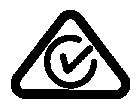NECA welcomes launch of new system to tackle noncompliant product
A major milestone in tackling the growing problem of noncompliant product in the electrical industry was reached recently when the Electrical Equipment Safety System (EESS) was launched in Queensland.
The EESS, which has been developed by the Electrical Regulatory Authorities Council (ERAC), provides an online database on which all suppliers and certain types of electrical equipment must be registered prior to being offered for sale.
The database will be rolled out in every Australian state and territory in due course, with only NSW still considering whether to join the system.
NECA welcomed the launch of the new system, which the association wants to see rolled out Australia-wide.
“The introduction of the EESS is a major step forward in tackling the growing problem of noncompliant electrical product in Australia and we congratulate ERAC and the Electrical Safety Office in Queensland in leading this initiative,” said NECA’s Chief Executive Officer James Tinslay.
“NECA has been working with electrical safety regulators to get the EESS introduced throughout Australia as it provides an easy way for electrical contractors to identify whether the products they are considering purchasing meet the relevant national standard.
“This is very important as with the rise of the Asian economy the market has become swamped with low-price electrical items and it is not always easy to identify those products which are compliant from those which could be potentially dangerous.”
The EESS is planned to be implemented progressively across Western Australia, Victoria, Tasmania, South Australia, Northern Territory and the Australian Capital Territory. NSW does not support the proposed scheme and is not participating at this time.
The EESS changes the regulatory requirements for businesses that import or manufacture in-scope, low-voltage electrical equipment rated from 50 through to 1000 V generally designed or marketed for household, personal or similar use.
All in-scope electrical equipment must be linked to a registered responsible supplier who must ensure that their products are electrically safe, meet prescribed standards and have company details listed on the national database.
Level 3 equipment must have full details registered on the national database and have third-party certification as previously required with “prescribed” or “declared” articles.
Level 2 equipment will also need to be registered and have a compliance folder when this level is established by regulators shortly.
Level 1 equipment will not need to be registered but their responsible supplier will have to declare they are safe and meet AS/NZS 3820 and hold supporting evidence.
The in-scope electrical equipment on the database will be marked with the Regulatory Compliance Mark (RCM). The RCM is the single mark electrical contractors should look for in selecting safe compliant electrical equipment.

NECA urges all contractors to check future electrical product purchases on the new national database of safe equipment at https://equipment.erac.gov.au/Registration/.
To help reinforce this message, NECA, together with the electrical industry portal Voltimum, launched a joint campaign at the beginning of May to alert the electrical industry to the dangers of using noncompliant product.
The decision to launch the campaign followed a recent electrical industry survey conducted by NECA and Voltimum which revealed that over 75% of contractors had come across noncompliant product in their work.
This is an alarming statistic as installing unsafe, noncompliant equipment can cause fires or electric shocks and could even lead to loss of life or property. It can also result in legal action being taken against the electrical contractor who installed the product.
The campaign aims to form an industry alliance to tackle this growing problem and to educate contractors, distributors, importers and manufacturers about the dangers associated with noncompliant product, and gather commitment from the whole of industry to work together to stamp it out.
How decarbonisation is affecting coal power workers
New independent research has found the cost of redundancy is higher for former coal-fired power...
Maintaining sparkie safety in a changing electrical landscape
Lucy Finlay discusses crucial safety considerations for electricians in light of changing...
How is energy adapting to the Consumer Data Right?
Australian fintech company Adatree has shared its insights into ‘Open Energy’ three...







